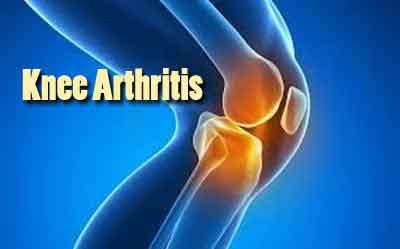- Home
- Editorial
- News
- Practice Guidelines
- Anesthesiology Guidelines
- Cancer Guidelines
- Cardiac Sciences Guidelines
- Critical Care Guidelines
- Dentistry Guidelines
- Dermatology Guidelines
- Diabetes and Endo Guidelines
- Diagnostics Guidelines
- ENT Guidelines
- Featured Practice Guidelines
- Gastroenterology Guidelines
- Geriatrics Guidelines
- Medicine Guidelines
- Nephrology Guidelines
- Neurosciences Guidelines
- Obs and Gynae Guidelines
- Ophthalmology Guidelines
- Orthopaedics Guidelines
- Paediatrics Guidelines
- Psychiatry Guidelines
- Pulmonology Guidelines
- Radiology Guidelines
- Surgery Guidelines
- Urology Guidelines
Glucosamine Supplements not effective in Knee or Hip Arthritis Pain :BMJ

The analysis of randomized controlled trials from which data have been made public has concluded that at both three-month and 24-month follow-up points, Oral glucosamine had no effect on either hip or knee pain from arthritis.
Moreover no tangible benefit was observed with the supplements even in sub-groups of patients with obesity or high inflammation.
Jos Runhaar et al conducted the trial in order to evaluate the effectiveness of oral glucosamine in subgroups of people with hip or knee osteoarthritis (OA) based on baseline pain severity, body mass index (BMI), sex, structural abnormalities and presence of inflammation using individual patient data.
The researchers evaluated and analysed data from randomized, controlled trials conducted between 1994 and 2014 for the effect of any oral glucosamine.After this they contacted in patients with clinically or radiographically defined hip or knee OA in order to assess pain, age, sex and BMI at baseline and pain as an outcome measure.
It was found that of 21 eligible studies, six (n=1663) shared their trial data with the OA Trial Bank. Five trials (all independent of industry, n=1625) compared glucosamine with placebo, representing 55% of the total number of participants in all published placebo-controlled RCTs. Glucosamine was no better than placebo for pain or function at short (3 months) and long-term (24 months) follow-up. Glucosamine was also no better than placebo among the predefined subgroups. Stratification for knee OA and type of glucosamine did not alter these results. In five of the trials, which altogether included more than 1,600 patients, compared glucosamine with a placebo in patients of osteoarthritis knee.
The effects of glucosamine and the placebo on pain and physical functioning didn’t differ, either in the short-term or at one or two years. The supplement was also no better than placebo among subgroups based on pain severity, severity of osteoarthritis, age, body
It was concluded that although proposed and debated for several years, open trial data are not widely made available for studies of glucosamine for OA, especially those sponsored by industry. Currently, there is no good evidence to support the use of glucosamine for hip or knee OA and an absence of evidence to support specific consideration of glucosamine for any clinically relevant OA subgroup according to baseline pain severity, BMI, sex, structural abnormalities or presence of inflammation.
For more details click on the link : http://ard.bmj.com/content/early/2017/07/28/annrheumdis-2017-211149

Disclaimer: This site is primarily intended for healthcare professionals. Any content/information on this website does not replace the advice of medical and/or health professionals and should not be construed as medical/diagnostic advice/endorsement or prescription. Use of this site is subject to our terms of use, privacy policy, advertisement policy. © 2020 Minerva Medical Treatment Pvt Ltd